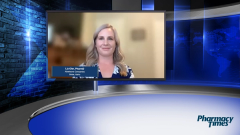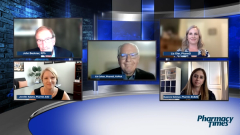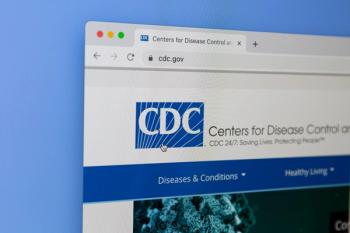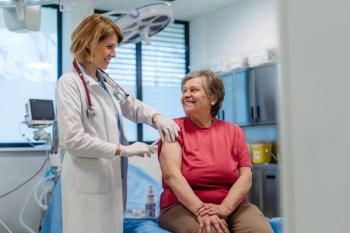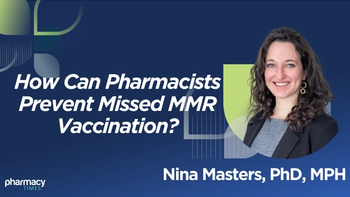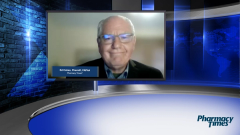
Thoughts On Pharmacies as The Center of Immunization Services
Ed Cohen, PharmD, FAPhA, leads a discussion in which panelists share thoughts on pharmacies being at the center of immunization services for the entire family.
Episodes in this series

Ed Cohen, PharmD, FAPhA: Hello. Welcome to this Pharmacy Times® webcast “Community Pharmacy: Center of Immunization Services.” I’m Ed Cohen. I’m from Pharmacy Times®, and I’ll be your moderator today. Joining me in this virtual discussion are my colleagues, Dr Jennifer Adams, associate dean for academic affairs and associate professor at Idaho State University in Meridian, Idaho; John Beckner, senior director of strategic initiatives at the National Community Pharmacists Association in Richmond, Virginia; Dr Liz Oler, patient care services coordinator of immunizations and advanced clinical services at Albertsons Companies in Boise, Idaho; and Dr Susie Soliman, founder of Pharmacist Moms, and chief academic officer for the Accreditation Council of Medical Affairs in New York, New York. Today, we’re going to discuss the role of the pharmacy as the center of immunization services. We know COVID-19 remains a threat, and we have made tremendous progress returning to what we call our new normal. The vaccine and the involvement of pharmacy are key contributors to returning to a new normal. We have come off a nonexistent flu season, and we know this coming season may not be the same. I’d like to begin our discussion focusing on COVID-19 immunizations, the opportunity to vaccinate adolescents age 12 and older, and then move to the flu, how teams will embrace the responsibility and step up to continue to immunize. Let’s get started.
Pharmacy has been providing immunization services for over 20 years. We’ve had increased recognition over the last few months from many levels of government and other agencies. We know seniors embrace pharmacy as the No. 1 and strongest audience for our service. With this new recognition, I think we have some notoriety from the 18- to 64-year-old group—those who are well and possibly have mild disease. There’s a quote that we took out of the literature. It states that it’s clear the American people feel comfortable relying on their local pharmacy for vaccines. I will start today’s conversation with Susie and John. Let’s talk about pharmacy as a center of immunization services
We’ll go with Susie first.
Suzanne Soliman, PharmD, BCMAS: I echo some of the data that you mentioned. Pharmacy is definitely the center for immunizations, and there have been surveys done, related to the COVID-19 vaccine, that showed that 40% of patients prefer to get their vaccine at the pharmacy and prefer to have a pharmacist administer their vaccination. Only 4% wanted a big site, where I had to go. I think it’s very clear that pharmacy is on the trajectory to become the center of this space. I think pharmacists have been embracing this new role and are taking it on. We have been working with schools as well, in a different way that I’ve seen. Pharmacies are expanding outside of their pharmacy, taking the show on the road and doing a lot more in different places. John, I don’t know if you want to add to that.
John Beckner, RPh: Thanks, Susie. Thanks for including me on the panel. I’m excited about being part of this. As you mentioned, immunizations have been a passion of mine for a long time. I think, certainly, what we’ve seen during the COVID-19 epidemic supports the fact that people like coming to the pharmacy to get their vaccine. Pharmacists are knowledgeable, accessible, and trusted. Probably the last word, trust, is what is helping people decide where to go for immunizations. That’s the pharmacy. Pharmacies have long been the center of health care in many of the communities that they serve. I think that trust factor plays a big role. People feel safe coming to the pharmacy. That’s been important with COVID-19. Not only has it tried to allay people’s fears about the vaccine, but it allays their fears about coming to a provider and coming to a pharmacy to be immunized. Again, pharmacists have been administering immunizations since the mid-1990s, so people are used to coming into the pharmacy to get their vaccines. The other thing with pharmacists taking care of the entire family is that they’re adept at understanding and knowing who needs what immunizations, not just COVID-19. They’re going to know whether a senior citizen needs a pneumococcal vaccine in addition to their seasonal flu shot. One thing Susie mentioned in her comments was that more people would come to the pharmacy as opposed to mass clinics. I think we’re seeing this a lot with second doses. These mass clinics are going by the wayside, so people who got their first dose at a mass clinic are now coming to the pharmacy for the second dose.
Suzanne Soliman, PharmD, BCMAS: Definitely. I think there’s a preference to go to the pharmacy over these mass clinics. You feel safer, especially with children. I see that a lot of parents are wanting to take their kids to the actual pharmacist, who they know and trust, vs someone they might not be familiar with.
Ed Cohen, PharmD, FAPhA: Liz, let me ask you something quickly. Along those lines, we look to pharmacy as the place we trust for our immunization services. When pharmacists take, as Susie alluded to, the show on the road, and you’re going off-site to an employer work site or a school, do you still engage patients, and they have that same trust not being in the store itself but being in a workplace or a school or in a community center, let’s say?
Liz Oler, PharmD: Absolutely. For an employer group of a well-known university, or a school district, when they put their trust in a pharmacy to take care of their students, our patients, it shows trust, and it brings to the forefront, to parents out in the world, that pharmacists can do that because we bring that service to them. Then they think of us moving forward as, “Oh gosh, we can go to our local pharmacy and get immunizations done.” It’s been a great opportunity to grow that knowledge base, which still seems to be lacking in the general population, that pharmacies and pharmacists can be the central place for immunization. Going out into the world and doing immunizations outside of our 4 walls is very beneficial.
Transcript edited for clarity.
Newsletter
Stay informed on drug updates, treatment guidelines, and pharmacy practice trends—subscribe to Pharmacy Times for weekly clinical insights.

